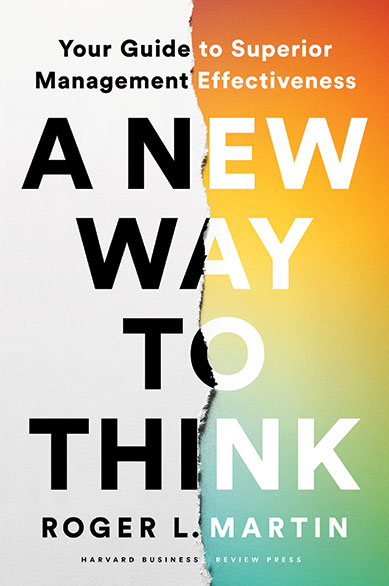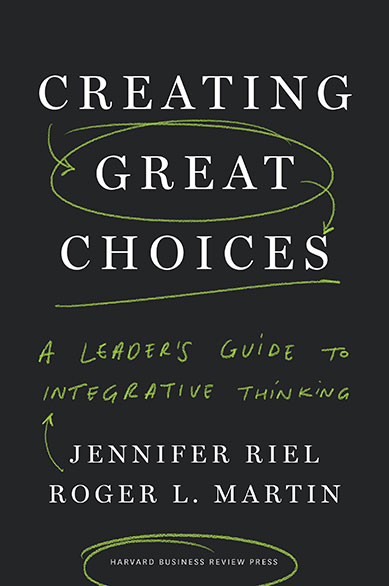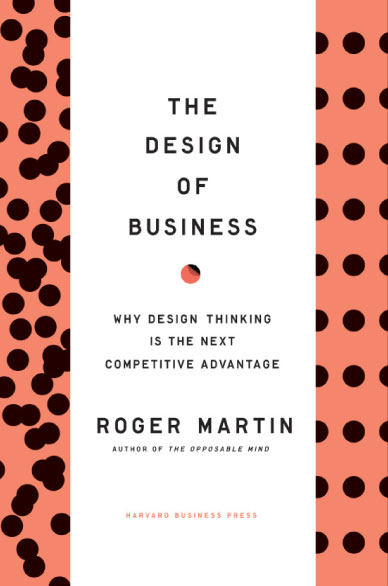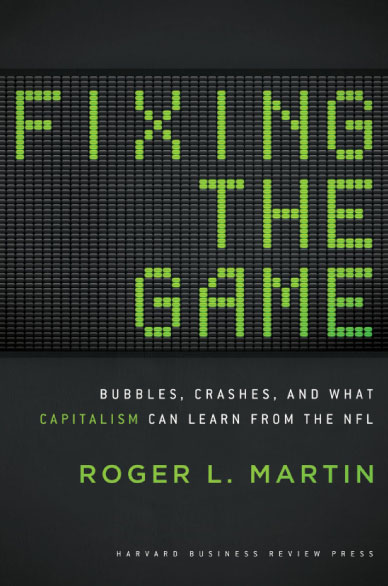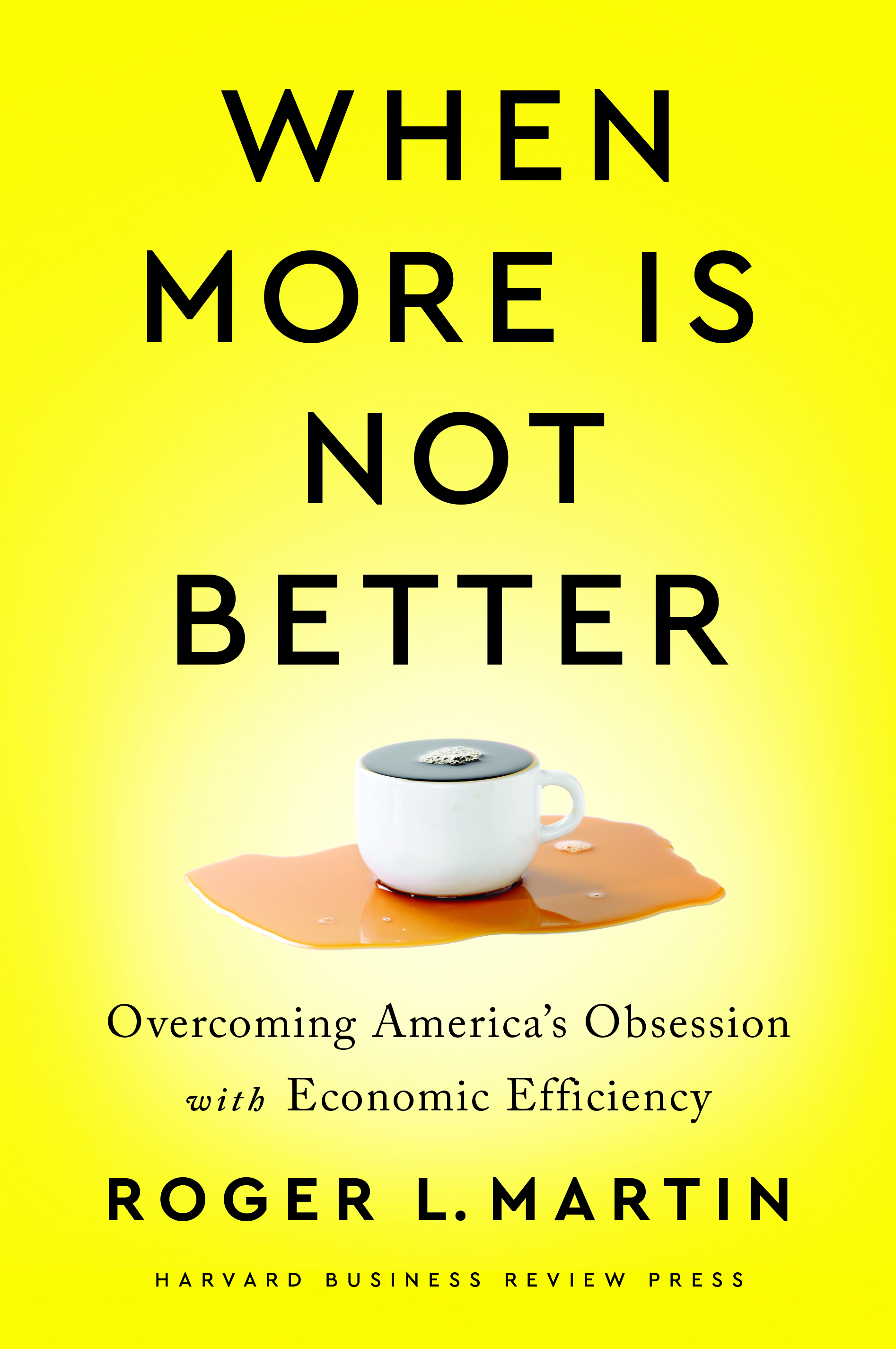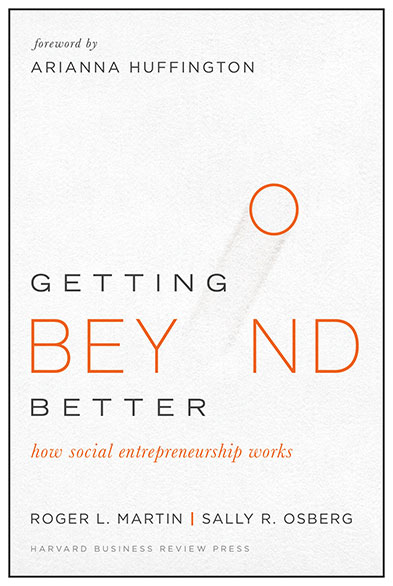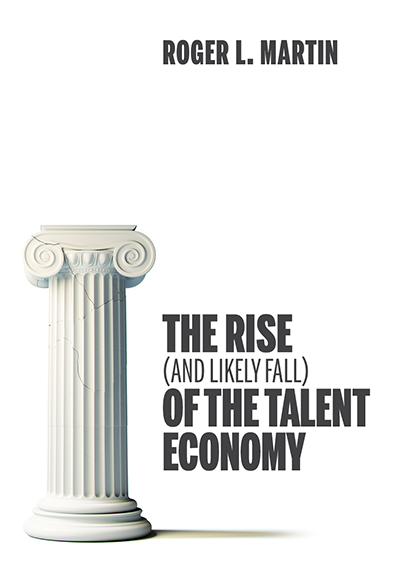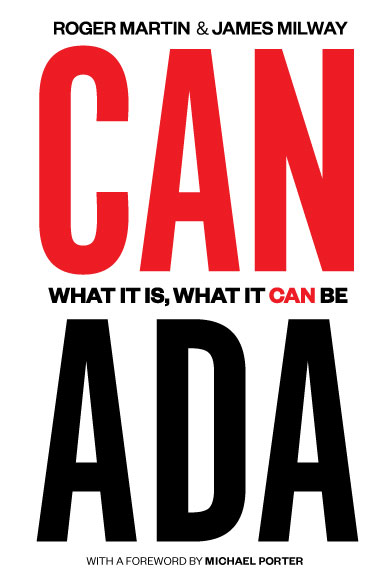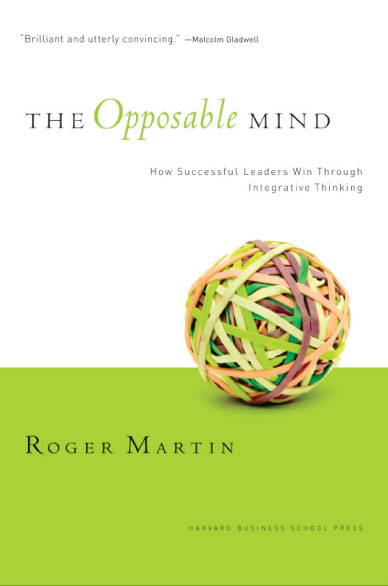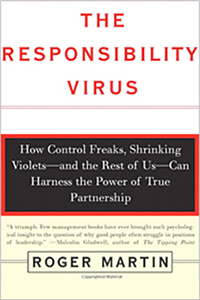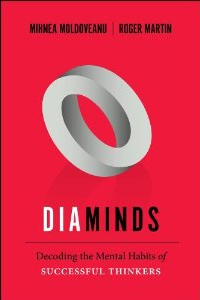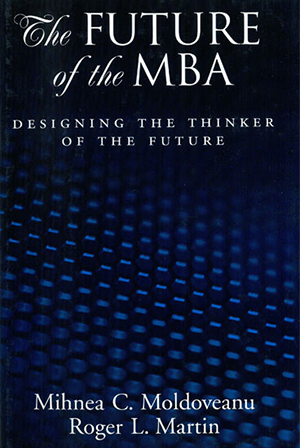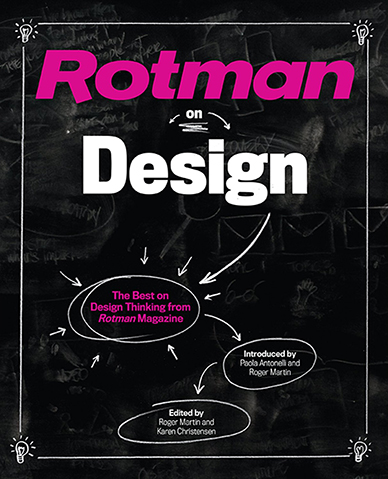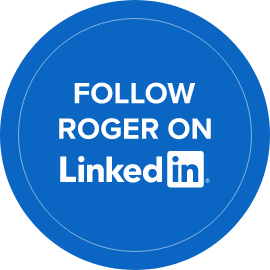Co-authored with Mihnea Moldoveanu
What constitutes successful thinking in business? What are some of the techniques used by top business minds in order to solve problems and create value? Dia-minds breaks new ground in addressing these questions.
Mihnea Moldoveanu and Roger Martin, creators of the Integrative Thinking curriculum at the Rotman School of Management, draw upon case studies and interviews – as well as theories and models from cognitive psychology, epistemology, analytic philosophy, and semiotics – to offer a new conception of successful intelligence that is immediately applicable to business situations. The ‘dia-mind’ (or dialogical mind) is characterized by bi-stability (simultaneously holding opposite plans, models, courses of action in mind while retaining the ability to act), meliorism (increasing the logical depth and informational breadth of one’s thinking processes), choicefulness (retaining the ability to choose among various representations of the world, the self and others) and polyphony (thinking about the way one formulates and solves a problem while at the same time thinking about the problem itself).
End-of-chapter exercises encourage readers to examine and re-engineer their own thought and perception patterns to develop these qualities and cultivate their own ‘dia-minds.’
FORMAT: Hard Cover
PUBLISHER: University of Toronto Press
PUBLISH DATE: December 2009
ISBN: 0802099912
PAGES: 192
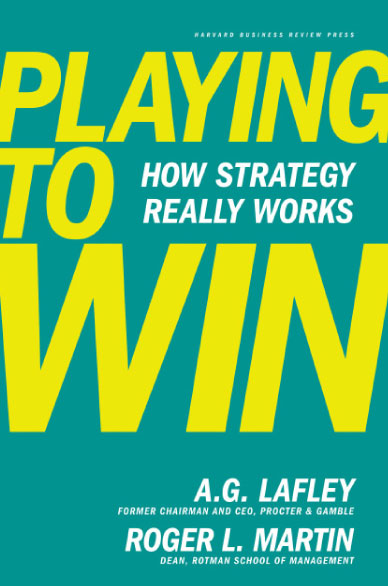 Buy the book
Book roger to speak
Buy the book
Book roger to speak
